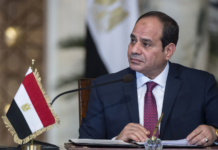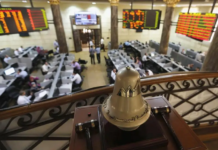By Nessma Ashraf
Devaluation of the pound is becoming an open debate among economists and the government whether to progress with this step or to wait. Probably as an Egyptian you must have listened to the words the devaluation of the pound or the floating of the pound at least once in your day. Everyone is talking and freaking out about the devaluation of the pound, which the government is about to implement. Here come the important questions that everyone is secretly asking about; what is the devaluation of the Egyptian pound? What are its implications on the Egyptian Economy and society? And finally, is there any hope or positive outcome from this harsh reality?
What is ‘Devaluation’?
Devaluation is a deliberate downward adjustment to the value of a country’s currency relative to another currency, group of currencies or standard. Devaluation is a monetary policy tool used by countries that have a fixed exchange rate or semi-fixed exchange rate system.
An ongoing debate over the pound devaluation
It is still unclear whether such policy is going to be implemented or not, since Tarek Amer, the Bank’s Governor, and Lobna Hilal, Deputy Governor of the Central Bank of Egypt, and Rami Abu Naja, Assistant Deputy Governor of the Central Bank of Egypt, who are responsible for the management of this file, are still in Washington attending the annual event of the Monetary Fund and the World Bank.
In a previous statement for Tarek Amer on the pound devaluation, he stated that ““I will not float the Egyptian pound before foreign exchange reserves increase to a level between 25 and 30 billion dollars, up from the current size of the reserve which is 16.48 billion dollars”.
It seems that Egypt’s economy and the middle class will undergo tough changes in the short-run of this quarter, if this decision was taken. With its currency trading near a record low in the black market, reserves to cover just three months of imports and a widening current-account deficit, pressure is mounting to devalue the pound to alleviate a dollar shortage that prompted officials to seek help from the International Monetary Fund. It is quiet known, that the IMF requires structural reforms in the economy to reduce government expenses and to increase revenues which is referred to by Fiscal consolidation, and also oblige government to decrease subsides and protective measures, as well as, devalue the pound. Taking the IMF loan is seen as an essential step to reignite the economy from its recession for the past five years and restores international confidence in the strength of the Egyptian economy.
Since devaluation or floating was introduced in the mid-seventies, the inevitable result was a dramatic increase in prices, which will burden the mid and low-income classes in Egypt. In 2003 Egypt has faced a very similar situation to the current dilemma, leading the officials to devalue the pound. Floating the Egyptian Pound was first introduced in 2003 – Public First acquaintance with the term – when the Egyptian government chaired by Atef Ebied decided to float the Egyptian Pound, this decision lead to the depreciation of the Egyptian Pound against the US Dollar by 50%. The US Dollar exchange rate before floating the Egyptian Pound was 3.40 EGP, but afterwards it reached 5.50 EGP, then 7 EGP, then it stood at 6.20 EGP, this action lead to a dramatic increase in prices, which was accepted by economist as a fair price rate.
The problem that faced the past governments and the officials now has to avoid, to make the devaluation of the pound successful; is not to intervene or back up the pound against the dollar. In the past years the government has always backed the pound, which resulted to have an unequal rate between the official rate and the black market. The CBE’s and the government decision to keep the dollar stable at this rate required imposing restrictions on hard currency movements, making it difficult for businesses to exchange currency in banks. As a result, the black market in Egypt has flourished.
In 2011 there have been a slowdown in the world trade and after the 25th of January revolution followed by unrest and political instability, which lead to a substantial fall in tourism, foreign investment, Suez Canal revenues, and Egyptian expats transfers. Since this increase is related to demand on liquidity. For anyone who needs to get a hold of dollars, banks are a limited option. Both Egyptians and foreigners resorted to the black market to access such hard currency, where everyone is now competing for the available dollars that are provided by people transferring remittances from abroad or small-time exporters who have dollars but can now exchange them at higher prices outside of the system.
The dollar shortage has stifled business activity and hit confidence in the Egyptian economy. Egypt devalued the pound by 13% in March in an effort to close the gap between the official and parallel rates but the move failed to boost dollar liquidity or close the gap. As a result, the officials are still debating whether or not to gradually devalue the currency in hopes of closing this widened gap and it would move to a more flexible exchange rate. In an effort to rebalance markets and ease a foreign exchange shortage. Although it is not clear yet what will the exact rate be; expectations for the official price to be between 11.50 &13.00 EGP said by Banking expert Ezz El-Din Hassanein, the director general of an Arab bank operating in Egypt. As a result, the best option here is for the government to not intervene and leave the market to regulate itself and reach is own natural equilibrium based on its true supply and demand.
The negative implications
An expected high inflation rate to take place is an inevitable matter unfortunately. Prices are expected to increase dramatically and this is going to highly impact the society especially the middle class, since Egypt is a consumer state that highly depends on imported products. In this case the government will have to intervene to protect those with the low income.
According to a number of economists the next period is going to be one of the hardest periods on the lives of the middle class, putting them in tough position where they would have to prioritize their purchasing products, for the increase of prices.
An expected recession period to take place over the economy, where everyone is afraid of buying or selling, as said by: AUC’s Venture Labs director Ayman Ismail. The market will be placed in a state of “wait & see”.
Another important impact is the increase of the exchange rate that is expected to take place in the upcoming month, but this is only temporarily. It is expected to revert back to its equilibrium. However, these are all consequences for a short term period in order to move up with the economy and develop it for the long run.
What are the positive impacts?
Counter to the popular image that Egypt is entering a very dark tunnel; however, there are some positive outcomes. Devaluing the pound would give an opportunity to increase and attract foreign investors to Egypt, in the short run. Since Egypt would become an attractive and cheap market for the foreign investors. Abdul Kadir Hussain, the chief executive officer of Mashreq Capital DIFC Ltd. in Dubai, said he might reconsider investing in Egypt after selling all of his dollar-bond holdings last year. “It could potentially open up Egypt for us again,” he said. The market will not only become appealing to foreign investors, but also real estate investors. The real estate market has proved to be one of the most successful businesses in Egypt over the past years.
In addition, this will become in an excellent opportunity for the Egyptian industrial sector to rise; this will provide the golden opportunity for Egypt to start increasing its own local production on order to maximise its exports and compete in the international market. As well as, increasing the competitiveness of the exports, that includes industrial and agriculture exports, tourism, and labour. A decrease in imports and increase in exports would solve Egypt’s trade deficit problem and help with rapidly depleting foreign reserves. This will happen when the local production is able to substitute the imported and foreign products. These are crucial benefits that the government is hoping for. The prime example for this is China; it has long kept its own currency low vis-a-vis to the dollar to support its strong export market.
Devaluing the currency is not the Magic Wand
As for now despite it still remains unclear whether devaluing the currency will be taken or not. It seems like floating the currency is the only harsh option to revive what left of the economy; however, floating the pound is not a long-term solution, but a short one. Policy makers must consider it as the corner-stone or as the first step towards a comprehensive reform road map boosting the economy and fixing the distortions the economy has suffered from for around five years now, especially that acquiring a loan from the IMF is considered as a guarantee for an economy with promising potential.
Moreover, devaluing the pound is an excellent opportunity to increase and encourage local production, which is a sector that has been subjected to recession for the past years. Since the key of development to any nation is to increase its own production and making it compatible to compete in the international market.
At the end Egypt is not the only country that devalued its own currency; China, Brazil, Mexico, and Nigeria are prime successful examples.












